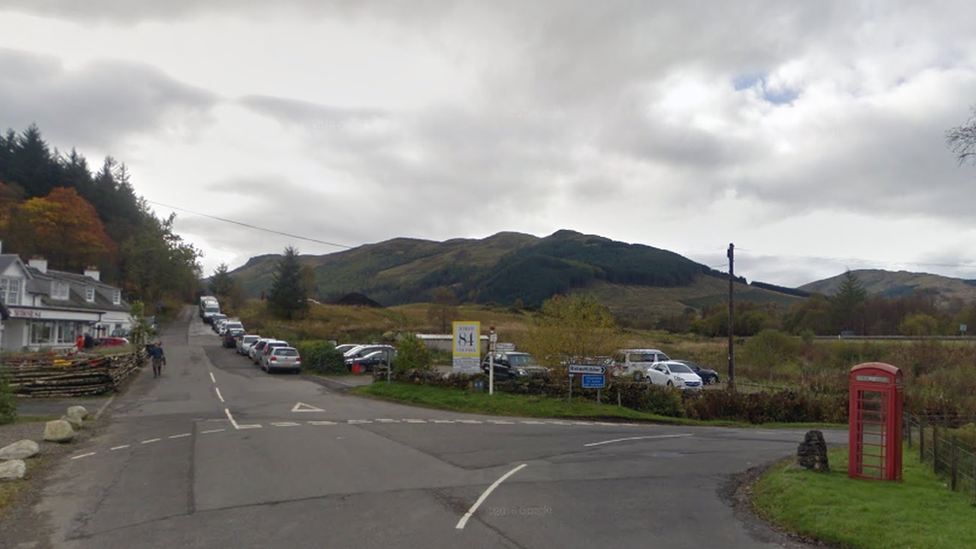Villagers dig in for own broadband network
- Published

The village's broadband project is expected to cost about £300,000
Residents of an internet-starved Stirlingshire village are to install their own 22-mile broadband network.
The Balquhidder community broadband project, external will connect about 200 households and businesses.
The project will cost about £300,000 with the funding being provided by private and public investors, including Stirling Council.
Work is expected to begin in the summer with the project due to be completed next year.
Richard Harris, one of the project leaders, told BBC Scotland that the efforts of local volunteers will be essential.
He said: "Most of the work is not particularly specialised, it's basically a plumbing job.
"A project like this is only viable, given the small size of the community, if you have a large amount of volunteer labour.
"The way we're doing it is to split it into about a dozen sectors.
"We're going to do some at a time, so that we can get the revenue coming in from subscriptions from the properties in each sector to help cash flow the next one."

About 22 miles of fibre optic cable will be used in the project
Miles of plastic piping will be laid in the trench, which is about 450mm deep and 100mm wide, with boxes at intervals to run smaller pipes into each property.
The fibre optic cable will then be blown through the ducting pipes with compressed air.
Local residents currently experience sporadic mobile phone reception and very low or non-existent internet connections.
Mr Harris said: "The houses at the very end of the glen near the main road get maybe 2 to 4mb on a good day, it's very unreliable.
"The rest of us get not very much at all. The further up the glen we go, the worse it gets.
"Many of us are on expensive, under-performing, unreliable satellite dishes at the moment."
Detrimental effect
Mr Harris said the lack of broadband was having a detrimental effect on local businesses and households.
He said: "The farmers can't put in their Defra returns, they can't put in their stock movement sheets.
"Hotels can't get bookings as people physically can't book with them, or people won't book with them because they don't have broadband.
"Young people are forced to leave and don't come back because there's nothing for them here, because of the lack of connectivity."
Residents have been campaigning for greater internet access in the area for more than 10 years.
Voluntary basis
Mr Harris said: "We are three years into the actual project, almost all of which has been taken up with bureaucracy around the funding.
"We've just decided to do it ourselves with the funding we have.
"Up to now, we've been running on a volunteer basis, with some sponsorship from local businesses and individuals.
"Assuming we get all the funding discussions resolved in the next two weeks, we are getting started almost immediately."
Mr Harris said the first rolls of ducting pipe have arrived, with the villagers set to get to work on the project soon.
He said: "We hope to get the main backbone, running east to west, rolled out this summer.
"It depends on volunteer labour and when farmers aren't lambing or haymaking.
"We are hoping to get a large part of it online this year and the rest finished in the early to mid part of next year."